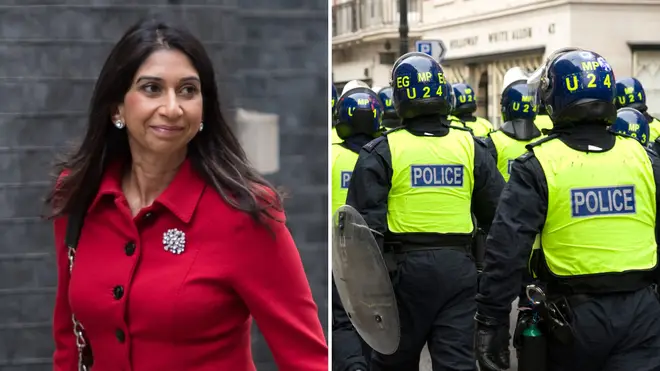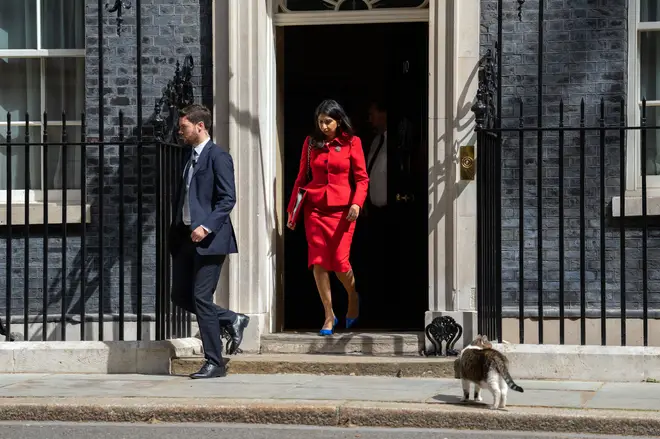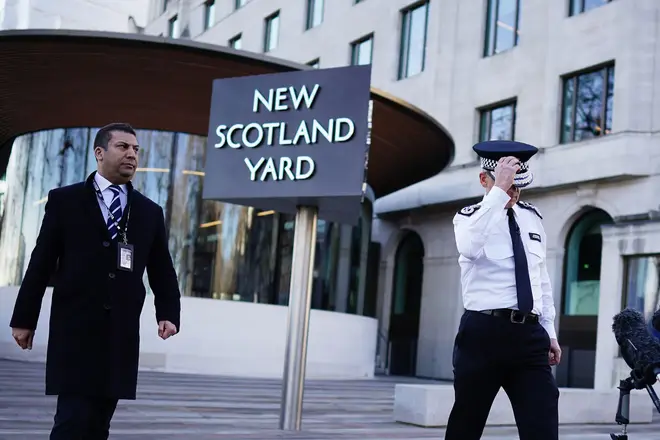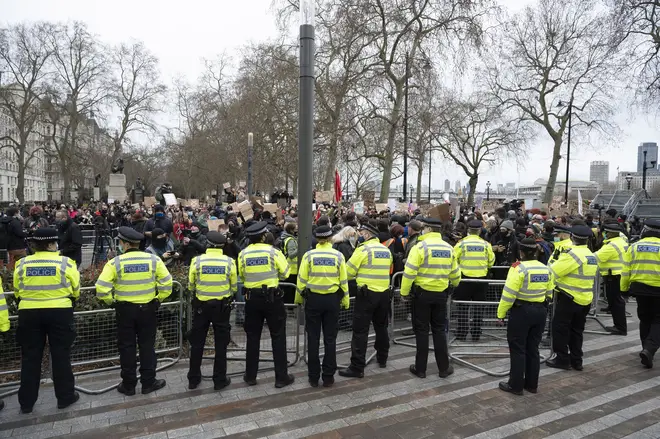
Clive Bull 1am - 4am
29 August 2023, 17:54 | Updated: 29 August 2023, 18:02

The Home Office is poised to make an announcement making it easier for police chiefs to get rid of officers and staff who are found guilty of misconduct.
The final say on whether officers can stay in post or be sacked will be given to Chief Constables, rather than independent lawyers on misconduct panels, known as Legally Qualified Chairs, LBC understands.
The move should speed up the process of clearing police ranks of ‘unsuitable officers’ after a round of re-vetting and checking staff records against the Police National Database.
Donna Jones, chair of the Association of Police and Crime Commissioners, said: “There are hundreds of police officers who are suspended or on directed duties across the country and it’s not uncommon for an average police force to have upwards of 20 officers waiting for misconduct proceedings.

“That’s hundreds of millions of pounds of taxpayers’ money each year being spent on officers who are not able to fulfil their duties because they’re not deemed to be safe enough to be out interacting with the public because of allegations made against them.
“It’s right and proper that they are dismissed as quickly as possible. It’s a better use of taxpayer’s money and once they’re sacked, the Chief Constable is free to go and recruit somebody else to replace them.”
Police leaders have been calling for improved dismissal powers for years, with the Home Office delaying an announcement while they reviewed the current set up following high profile cases of criminals in the Metropolitan Police, including Wayne Couzens and David Carrick.
Speaking after the Baroness Casey Review into the Met Police exposed a culture of racism, misogyny and homophobia in the force, Commissioner Sir Mark Rowley told LBC there were ‘hundreds’ of people that he wanted to get rid of.
He said: “I’ve been pushing the Home Secretary and Prime Minister for rapid changes to police regulations to enable me to more robustly deal with this”.

While in April, he again told LBC there was a lack of guidance or framework in place to allow police forces to sack officers or staff who have had their vetting withdrawn.
Sir Mark Rowley said: "I think anybody running an organisation needs to have the levers to do what the public expects of them.
"I don't think it's unreasonable for those delivering policing to have the final say in who can be in the organisation.”
The Met has been trialling a new way of carrying out accelerated misconduct hearings to dismiss staff who are unable to fully carry out their duties, without the right security clearance in place.
Legally Qualified Chairs were brought in to oversee police disciplinary panels in 2016 in a bid to make the system more transparent.
But concerns have been raised at some of the decisions taken with the Chief Constable of British Transport Police, Lucy D’orsi, successfully challenging one misconduct panel ruling at the High Court earlier this year.

PC Imran Aftab had been given a final written warning rather than being dismissed after he approached a jogger and used his police warrant card to try to talk to her, in an attempt to abuse his position for a sexual purpose.
Lucy D’Orsi described the court’s siding with her to overrule the decision as “a landmark ruling that preserves my faith in justice” amid an “ongoing struggle to restore the confidence of women in policing”.
Earlier this year, we revealed rapist Met Police officer David Carrick had likely been paid upwards of £60,000 while he was being held in custody, following his arrest.
Misconduct proceedings against him had to wait until he was found guilty of 85 serious offences, including 24 counts of rape against 12 women.
Other women who’ve complained about the behaviour of police officers have also contacted us to share their concerns about perpetrators being moved elsewhere in the force, allowed to continue working, while allegations are investigated, in some cases for months or even years.
One police staff member told LBC: “Two of us reported a male colleague for sexual assault while we were off duty and he was never suspended or anything, just moved to a different station.
“He’s been waiting more than a year for a misconduct hearing and is still working as a serving officer. They’re not eliminating the perpetrators, they’re simply moving them elsewhere’.
Another police staffer told us she was put off reporting a sexual assault by an officer after she heard what colleagues she considered friends had to say about it.

She said: “I told a friend who was a police officer exactly what had happened and his response was something like ‘is it funny that this turns me on?’
"I remembered that he’d at one point also called most people he dealt with who reported sexual offences 'narcissistic bitches with a grudge’ and he was actually trained as a sexual offences officer.”
LBC understands the Home Office is expected to make a formal announcement, giving Chief Constables the final say on dismissals, later this week.